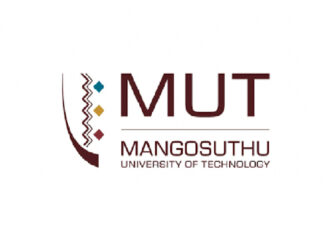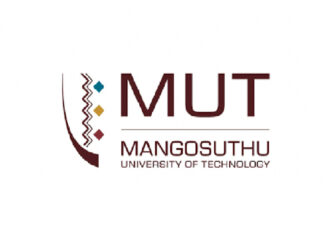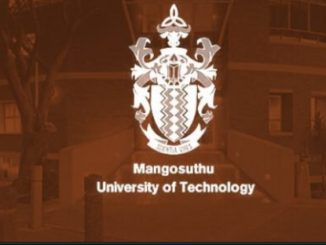JOIN OUR WHATSAPP GROUP. CLICK HERE
Mangosuthu University of Technology (MUT) Courses/ Faculties And Entry Requirements PDF Download

Mangosuthu University of Technology (MUT) Courses/ Faculties And Entry Requirements PDF Download This Article Contain All faculties Short and Long Courses & Programmes Offered Mangosuthu University of Technology (MUT) in All level starting from Undergraduate Courses Offered, Postgraduate courses Offered, Masters Courses offered, Certificate Courses Offered , Diploma Courses offered, Bachelor Degree Courses offered ,Distance Learning Courses And Admission Requirements.
The MUT Courses & Programmes is obtained from the official Mangosuthu University of Technology (MUT) website https://www.mut.ac.za/as approved by Management there fore this post is Accurate.
MUT Minimum Entrance Requirements
- National Senior Certificate with a diploma pass or N3 with 50% pass in Mathematics and English
- A minimum of 5 subjects with level 4 pass for diploma study and level 3 for Access Courses
- English Home Language or First Additional language, level 4 pass
- Specific subject combination and pass level relevant to the qualification
- Minimum points as per faculty requirement and as listed on the CAO handbook
Point calculation matrix
National Senior Certificate:
NSC LEVEL RATING
| NSC PERCENTANGE | POINTS |
90 – 100 | 8 | |
7 | 80 – 89 | 7 |
6 | 70 – 79 | 6 |
5 | 60 – 69 | 5 |
4 | 50 – 59 | 4 |
3 | 40 – 49 | 3 |
Senior Certificate:
| Symbol | Higher Grade | Standard Grade |
A | 8 | 6 |
B | 7 | 5 |
C | 6 | 4 |
D | 5 | 3 |
E | 4 | 2 |
FACULTY OF MANAGEMENT SCIENCES
Management Sciences is concerned with developing and applying models and concepts that help to illuminate management issues and solve managerial problems. The faculty offers National Diplomas in Accounting, Cost and Management Accounting, Public Finance & Accounting, Human Resource Management, Marketing, Office Management & Technology, and Public Management.
Qualifications and CAO codes for the Faculty of Management Sciences
| Qualification | Minimum requirements | Duration |
| Accounting | English Home Language 3 English First Additional Language 4, Accounting 4 Mathematics 3 OR Mathematics Literacy 4 | 3yrs |
| Cost and Management Accounting | English Home Language 3 English First Additional Language 4, Accounting 4 Mathematics 3 OR Mathematics Literacy 4 | 3yrs |
| Public Finance and Accounting | English Home Language 3 English First Additional Language 4, Accounting 4 Mathematics 3 OR Mathematics Literacy 4 | 3yrs |
| Human Resource Management | English Home Language 3 English First Additional Language 4 Mathematics 3 OR Mathematics Literacy 4 | 3yrs |
| Marketing | English Home Language 4 English First Additional Language 5 Mathematics 3 OR Mathematics Literacy 4 Accounting 3 | 3yrs |
| Office Management & Technology | English Home Language 3 English First Additional Language 4 Any other 5 accredited subjects 25 points A pass in typing or Computer Studies will be an added advantage | 3yrs |
| Public Administration | English Home Language 3 English First Additional Language 4 Any other 5 accredited subjects 25 points | 3yrs |
Career opportunities
National Diploma: Accounting, Cost & Management Accounting
Cost Accounting is part of Management Accounting, which establishes budgets, standard costs and actual costs of operations, processes departments or products in an organisation or enterprise. Cost Accounting includes the analysis of variances, profitability or social use of funds. Costing data provided by the cost accountant serves as a managerial tool for planning, controlling and decision-making.
The National Diploma Cost and Management Accounting is geared to provide students with a thorough understanding of the principles, techniques, methods and practice of Cost Accountancy, as well as the use of cost information for planning, control and decision- making. Cost information is used for the preparation of reports required by management for such purposes as the formulation of policies, planning and controlling activities, decision-making, disclosure of information to external entities and employees.
National Diploma: Human Resources Management
The human resources practitioner or manager has an important role to play in ensuring that an organisation has a suitably skilled and efficient work force. The diploma qualifies students for a range of HR occupations in the areas of recruitment, employee benefits, talent development & management.
National Diploma: Marketing
Marketing involves researching consumer needs and formulating means to promote and supply products and services to meet those needs efficiently and effectively. The diploma qualifies students for a wide range of occupations in the areas of marketing, advertising and public relations.
National Diploma: Office Management & Technology
The course gives students the business and administrative skills and knowledge to understand how business operates and to administer an office efficiently. Completing the diploma qualifies a student for administrative positions in any industry.
National Diploma: Public Management
The government provides many essential services to communities in South Africa, including housing, education, transport and the provision of municipal services through local government. A huge administrative infrastructure employing thousands of public servants organises the delivery of these services through the various government departments. The National Diploma: Public Management equips students with the theory and practical skills needed to administer and manage the provision of government services effectively and efficiently.
JOIN OUR TELEGRAM CHANNEL. CLICK HERE





Be the first to comment